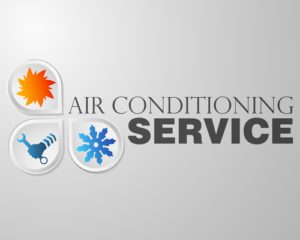What is Air Conditioning?
 Learning about the science behind air conditioning is a must for anyone who wants to make the most of this technology in their home or office. An air conditioner has at least three major components: the condenser, the compressor, and the evaporator. The evaporator is usually located inside a building, whereas the other two parts can typically be found on the outside.
Learning about the science behind air conditioning is a must for anyone who wants to make the most of this technology in their home or office. An air conditioner has at least three major components: the condenser, the compressor, and the evaporator. The evaporator is usually located inside a building, whereas the other two parts can typically be found on the outside.
Contrary to what some people believe, an air conditioner doesn’t work by bringing cool air from outside into your home. In fact, the premise on which an air conditioner functions is that it removes heat from the air inside your home and pushes it into the air outside. This is accomplished with the use of a chemical called refrigerant, which arrives at your compressor in a gaseous form. The compressor squeezes it until its molecules are close together, producing both pressure and heat. The refrigerant then moves into your condenser, which allows the heat to escape. This turns the refrigerant into a liquid, which is fed into the evaporator. Inside the evaporator, the refrigerant loses pressure and becomes a gas once again. To accomplish this, it must remove heat from the air around it. Since the evaporator is inside your home, this process accounts for the cooling effect produced by an air conditioning system.
What are the Benefits of Air Conditioning?
Air conditioning has numerous benefits that make it an asset in homes and offices alike. One of the primary reasons to use air conditioning is that it has shown to have a positive effect on human efficiency. Excessive heat can affect concentration as well as comfort, making it difficult to stick to a routine or perform high-level cognitive tasks with accurate results.
Air conditioning also has a beneficial impact on human health, since it improves air quality and circulation in buildings. In turn, fresh air has been linked to various health improvements, ranging from digestion to blood pressure and heart rate. Fresh air even has a measurable impact on happiness, which means that using air conditioning presents a viable way to improve a person’s quality of life in their dwelling or workplace.
The Most Important Aspects of an Air Conditioning Service
Any technician you call to perform service on your unit should meet a few key criteria first. The most important thing is that you contact a licensed and experienced company for any work you require. Most states have laws that require HVAC technicians to be licensed, and any contractor working with refrigerant requires a certificate from the EPA. Certification is especially important when it comes to refrigerant, since commonly used chemicals such as Freon gas can be hazardous if deeply inhaled.
Experience is also an important asset to look for when hiring an HVAC technician since heating and cooling are complicated technologies requiring considerable expertise. It’s best to choose an air conditioning service with a longstanding track record of successful work and happy clients so that you can have confidence in their abilities.
Critical Steps in Air Conditioning Repairs
Calling an HVAC technician to perform routine maintenance or necessary repairs on your system is an important part of AC ownership, but it’s important to know what they’re supposed to do before you hire one. Familiarize yourself with the standards and practices of air conditioning maintenance before you decide to hire a technician, and you’ll be putting yourself at a distinct advantage. Preparation and understanding help you identify a technician who knows what they’re doing and reduces the risks of poor service.
An HVAC technician should always check your filters to make sure they don’t require replacement. Dirty filters can affect the efficiency of your system by as much as 15%, so this is often a major source of lost energy for system owners. The good news is that changing a filter is quite an easy job, so if this is the biggest problem with your unit you won’t be looking at an expensive fix.
Dirty filters can cause a variety of other, more significant problems, however. You may end up with dirt in your evaporator coil, which can reduce its effectiveness at heat absorption. A skilled technician should be able to check for dirt on your coil and clean it effectively. They should also know how to unblock a condensate drain, remove dirt from the foils around your condenser, fix refrigerant leaks and check the efficiency of your unit.
How to Compare Air Conditioning Companies
Compare air conditioning companies by looking at their years of experience, licenses and certifications, and their price-per-job. Make sure to examine each of these criteria thoroughly before hiring anyone to work on your AC system.
What are the Costs to Install, Maintain and Repair an Air Conditioner?
Because buildings vary widely regarding their size, materials, and energy efficiency, it is not possible to predict the exact costs for installing an air conditioner. However, it is possible to arrive at a ballpark prediction. Last year, the average installation cost of a unit was $5,250, but prices ranged from $1,800 to $10,000. As for maintenance, most technicians charge $50-70/hr for their services. Repairs vary according to the parts that need repair or replacement. Find average prices here.

